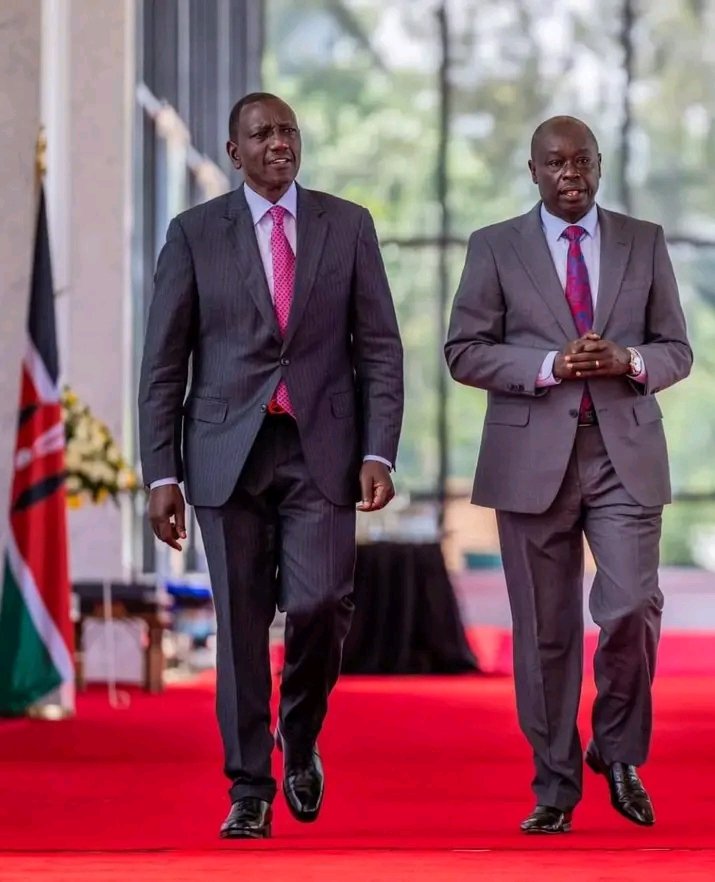Kenya’s coffee industry has long been regarded as one of the country’s most important economic sectors. It is a major foreign exchange earner and has provided livelihoods to millions of Kenyans. However, as global climate change continues to accelerate, the very foundations of this beloved industry are now under significant threat. The country’s coffee farmers, particularly those in regions like Kiambu, Murang’a, Nyeri, and central Kenya, are facing increased challenges that could have long-lasting effects on production levels and bean quality.

Climate Change and Its Impact on Coffee Farming
Kenya’s coffee-growing regions are known for producing some of the highest-quality coffee beans in the world. This reputation has been built on ideal growing conditions—altitude, favorable rainfall, and temperate climate. However, in recent years, these conditions have become increasingly unpredictable. Rising temperatures, irregular rainfall patterns, and prolonged droughts are severely affecting the growth of coffee plants.
Coffee is a particularly sensitive crop when it comes to changes in climate. Coffee trees thrive in stable conditions, with temperatures ideally ranging between 18 to 22 degrees Celsius and consistent rainfall. Unfortunately, these conditions have become increasingly erratic. In many areas, farmers are reporting unusually high temperatures and extended dry spells, which are stressing the coffee plants and reducing their ability to produce quality beans.
Furthermore, the changing climate is also contributing to an increase in the prevalence of pests and diseases that affect coffee crops. For instance, the coffee berry borer, a notorious pest, thrives in warmer conditions and has been a significant threat to coffee yields. The rising temperatures and erratic weather conditions have exacerbated the vulnerability of coffee plants to such pests, causing further damage to crops.

Declining Yields and Bean Quality
Farmers in Kenya’s prime coffee-growing regions, such as Kirinyaga, Kiambu, Murang’a, and Nyeri, are experiencing decreasing yields as a result of the changing climate. The expected annual harvests have been declining, and this trend is likely to worsen if the environmental conditions continue to shift. In addition to lower yields, there has been a marked deterioration in the quality of the beans. Coffee grown under stressful conditions tends to produce beans that are less flavorful, which diminishes the reputation of Kenya’s coffee in the global market.
A reduction in bean quality means that farmers are receiving lower prices for their harvests. Since coffee is an important cash crop for these farmers, this decline in quality and yield is having a direct economic impact on their livelihoods. Many farmers who have relied on coffee farming for generations are now struggling to make ends meet.
Calls for Government Support
In response to these mounting challenges, coffee farmers are calling for greater support from the Kenyan government. Farmers are particularly urging the government to invest in irrigation systems that can help mitigate the effects of droughts. While coffee farming in Kenya has traditionally relied on rain-fed systems, the increasing unpredictability of rainfall is pushing farmers to consider alternative water sources to ensure crop survival.
Another important request from farmers is for better access to climate-resistant coffee varieties. Researchers have been working on developing coffee breeds that are more resilient to heat and drought, and farmers are pushing for wider access to these varieties. If adopted on a larger scale, climate-resistant coffee could help safeguard the industry from future climate shocks.
In addition to these measures, farmers are calling for better access to finance and technical support to adopt climate-smart agricultural practices. This includes providing training on sustainable farming techniques, pest and disease management, and soil conservation. Climate-smart agriculture, which integrates practices that reduce environmental impact while maintaining productivity, is seen as a key strategy for securing the future of Kenya’s coffee industry.

The Road Ahead: Innovation and Sustainability
Experts have warned that Kenya’s coffee industry is at a crossroads. Climate change is not just a threat but also a potential driver for innovation within the sector. The challenge presents an opportunity for farmers, researchers, and government stakeholders to come together and explore new ways of adapting to the changing climate.
One area that holds promise is the development of sustainable farming practices. Sustainable coffee farming involves using methods that improve soil health, reduce water usage, and minimize the use of harmful chemicals. It also includes diversifying income sources for farmers to reduce their reliance on a single crop. For example, agroforestry, which involves planting trees alongside coffee crops, can help improve biodiversity, conserve water, and protect the soil from erosion.
Furthermore, there is a growing movement toward certified organic coffee, which uses natural fertilizers and pesticides to minimize environmental harm. As the global demand for organic and sustainably produced coffee grows, Kenya’s farmers could tap into this lucrative market by adopting these practices.
The Role of Research and Technology
Research into new coffee varieties that are more resistant to climate change is critical to the future of Kenya’s coffee sector. Several universities and research institutions are working on breeding coffee varieties that can withstand extreme temperatures, pests, and diseases. These varieties are being designed not only to survive changing environmental conditions but also to maintain the high quality that Kenyan coffee is known for.
In addition to breeding new varieties, technology is playing a crucial role in improving the resilience of the coffee sector. Mobile apps and data analytics tools are being used to help farmers access real-time information on weather patterns, pests, and diseases. This information can be used to make informed decisions about when to plant, irrigate, and harvest coffee.
Moreover, climate change is prompting more research into water management techniques that are sustainable and efficient. Innovative irrigation systems, rainwater harvesting techniques, and soil moisture monitoring tools are all being developed to help farmers better manage water usage, particularly in areas where water scarcity is becoming a serious issue.
Conclusion
Kenya’s coffee industry is at a critical juncture, where climate change is presenting both serious challenges and significant opportunities. While farmers are grappling with reduced yields and deteriorating quality, there is hope that innovation, research, and government support can help secure the future of this vital sector. The calls for increased investment in irrigation systems, climate-resistant coffee varieties, and sustainable farming practices are essential for ensuring that Kenya’s coffee industry continues to thrive in the face of a changing climate.
The future viability of Kenya’s coffee industry depends on collective action from farmers, government agencies, and international stakeholders. As the global demand for sustainable and high-quality coffee grows, Kenya has the potential to not only adapt to climate change but to emerge as a leader in climate-smart coffee production.



